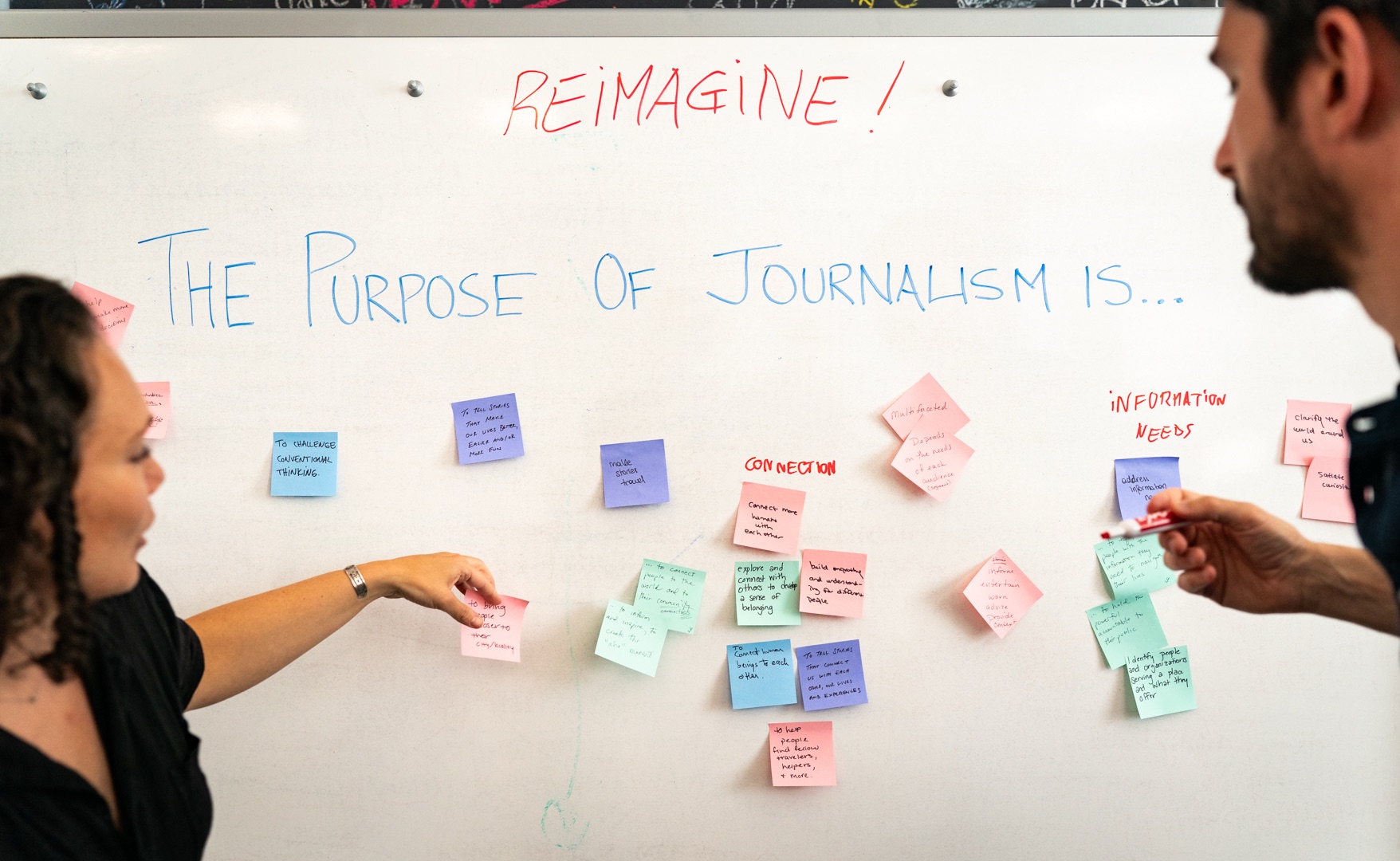The second you decide to learn to code, let everyone - your parents, your grandparents, your Twitter followers - know. Coding might be portrayed as a loner activity in the media, but I've found that when coding your best friend is the universal coding community.
I built my first portfolio site with the help of learn.knightlab.com last fall. The feat took me a year to complete. In hindsight, I realize that part of the reason I was so slow was that I could never think of myself as a developer and certainly not one talented enough to seek help publicly and online. But a whole world of coders exists out there – on Twitter, on GitHub – and I could see from laptop in my lamp-lit dorm room at 2:00 a.m. that they were always talking to each other.
There was no way I was smart or cool enough to talk to them and be a member of that community.
I finally began building my portfolio site in late summer. It was minimalistic – in part because I wanted to start small, and in part because I admired the then-design of Knight Lab fellow Suyeon Son’s portfolio site, the color scheme, and the basic JQuery functions she used. If only I could find out how she built it.
I first accessed the coding community at my fingertips in my favorite coffeeshop with a high school friend who had just returned from her internship at Google. My website was painfully bare — some scrawny HTML on a sea of whiteness. But then I positioned a div and it looked great. I wanted to make a div toggle-slide. I wanted to make the mail icon open up my Mail app.
“You should check out Suyeon's GitHub repo,” my friend suggested.
The rest ran like water.
I warmed up to the coding community by, for the first time ever, looking at Suyeon's repo. It helped that Suyeon and I were friends so I didn't have to worry about sounding stupid when I asked her questions. I looked at her code and it wasn’t a jumble of characters to me – it was the story of how Suyeon built her site. Though I wasn’t talking to her, being able to copy her code made me a participant in the coding community.
I learned from my mistakes by asking for help on Twitter. I wanted to use SoundCite in my portfolio to showcase my audio pieces, but didn’t understand that it wouldn’t work locally. I tweeted at former Knight Lab fellow Tyler Fisher who responded immediately, kindly informing me that everything was working just the way it should.
Portfolio complete, I moved on to building an audio site with Tarbell, a spreadsheet-based CMS. I was still shy about reaching out strangers for assistance. When I couldn’t install Tarbell after three tries, I tweeted at Heather Billings and David Eads both of whom worked then at Chicago Tribune and responded with advice the next morning. When it still wouldn’t work, Joe Germuska taught me how to submit an issue on GitHub.
Joe encouraged me to suggest to Eads that a step could be added to the instructions of Tarbell. “Though I guess it might be a step that’s intuitive to most,” I added humbly in my Gist.
Eads responded, “LOL it isn’t obvious to anybody!” and “Thanks for struggling through this, because now we know it’s necessary.”
Coders are a community. And I learned that in our community, when you receive help, you might also be contributing.
About the author





